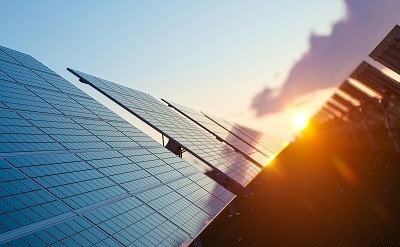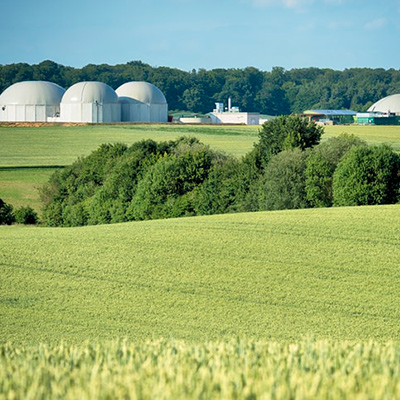- The financing will support the construction of two solar PV plants in Andalusia for a total installed capacity of 227 MW
- The investment amount will be fully allocated to cohesion regions, contributing to equitable growth and convergence of living standards
- The operation contributes to the REPowerEU objective of increasing security of energy supply by reducing EU dependency on fossil fuels imports
The projects will generate electricity equivalent to the average annual power consumption of around 108 800 Spanish households and prevent greenhouse gas emissions by the equivalent of over 140 000 tonnes of CO2 a year.
The entire 227 MW of installed capacity will be deployed in cohesion regions, where per capita income is less than 75% of the EU average, underlining the EIB’s commitment to reduce regional inequalities and promote investment in less advantaged areas. The loan is also part of the EIB’s action plan to support REPowerEU the initiative designed to boost energy security to reduce EU dependence on fossil fuel imports.
“Today’s financing agreement is another example of EIB’s ongoing support to increase renewable energy generation in Spain. This new loan will add 227 MW of electricity generation capacity from renewable sources, accelerating the green transition and fostering cohesion. It also reflects the EIB’s commitment to ensuring access to sustainable energy for all Europeans, and towards the strategic autonomy of the European Union,” said EIB Vice-President Ricardo Mourinho Félix.
Maarten Wetselaar, CEO of Cepsa, said: “This new loan from the EIB will help Cepsa build two solar plants in Andalusia, southern Spain, where we are developing one of the most ambitious green hydrogen projects in Europe. Solar power is a key ingredient for the production of green hydrogen, which can decarbonize heavy transport and industry, and also for other energy-intensive uses. We thank the EIB for their support in helping Cepsa move forward with our strategy to become a leading provider of clean energy solutions, particularly for hard-to-abate sectors.”
The EIB and energy security
In 2022, the EIB Group committed more than €17 billion to finance the energy transition in Europe. As this is a top priority for the EU climate bank, Spain received a record €3.1 billion in financing that year for projects in sustainable energy and natural resources (the second largest beneficiary of financing in the European Union). These investments are helping Europe to accelerate the transition to sustainable energy and weather the crisis triggered by the abrupt cut in gas supplies in the wake of Russia’s unjustified invasion of Ukraine.
In July 2023, the EIB Board of Directors raised the amount earmarked for REPowerEU projects to €45 billion. REPowerEU is the plan designed to end Europe’s dependence on fossil fuel imports. This additional funding comes on top of the EIB’s already robust support for investments in sustainable energy. It is a 50% increase on the original €30 billion package for REPowerEU announced in October 2022.
To boost financing for the EU manufacturing industry, the EIB will also expand the range of eligible sectors to include leading strategic technologies with net-zero carbon emissions, as well as extraction, processing and recycling of critical raw materials. The additional financing will be disbursed between now and 2027. In total, it is expected to mobilise more than €150 billion in investment in the target sectors.
The EIB granted a €150 million loan to Cepsa earlier this year to install over 1,800 ultra-fast charging stations for electric vehicles across Spain and Portugal service stations.
Find out more about the EIB’s support for the energy sector here.
Background information
European Investment Bank
The European Investment Bank (ElB) is the long-term lending institution of the European Union owned by its Member States. It makes long-term finance available for sound investment in order to contribute towards EU policy goals. The European Investment Bank Group (EIB Group), consisting of the European Investment Bank (EIB) and the European Investment Fund (EIF), reported total financing signatures of over €9.9 billion in 2022 in Spain, including record financing for climate action and environmental sustainability projects. In Portugal, the EIB Group reported €1.7 billion of new financing signed in 2022.
Cepsa and sustainability
Through its 2030 strategy Positive Motion, Cepsa is carrying out a profound transformation, with the aim of decarbonizing its activity and helping its clients address their own decarbonization challenges. To achieve this, the company will invest between €7 and €8 billion this decade, of which around 60% will be for sustainable businesses linked to electric mobility and the production of green molecules, mainly green hydrogen and its derivatives (ammonia and methanol), and biofuels.
With its strategy, Cepsa has established an ambitious roadmap to cut its emissions with some of the most ambitious targets in the sector. Specifically, it will reduce its CO2 emissions (Scope 1 and 2) by 55% in 2030 compared to 2019 and the carbon intensity of its products by 15% to 20%. The Company aspires to reach Net Zero emissions in 2050.
The main sustainability rating agencies recognize Cepsa as a benchmark in its industry. S&P Global identified the Company as a global leader in its sector in 2023, while Moody's placed it as one of three companies in the European energy sector with the best rating for ESG policies and performance. Meanwhile, both Sustainalytics and Clarity AI have named the Company as first in its sector globally.




